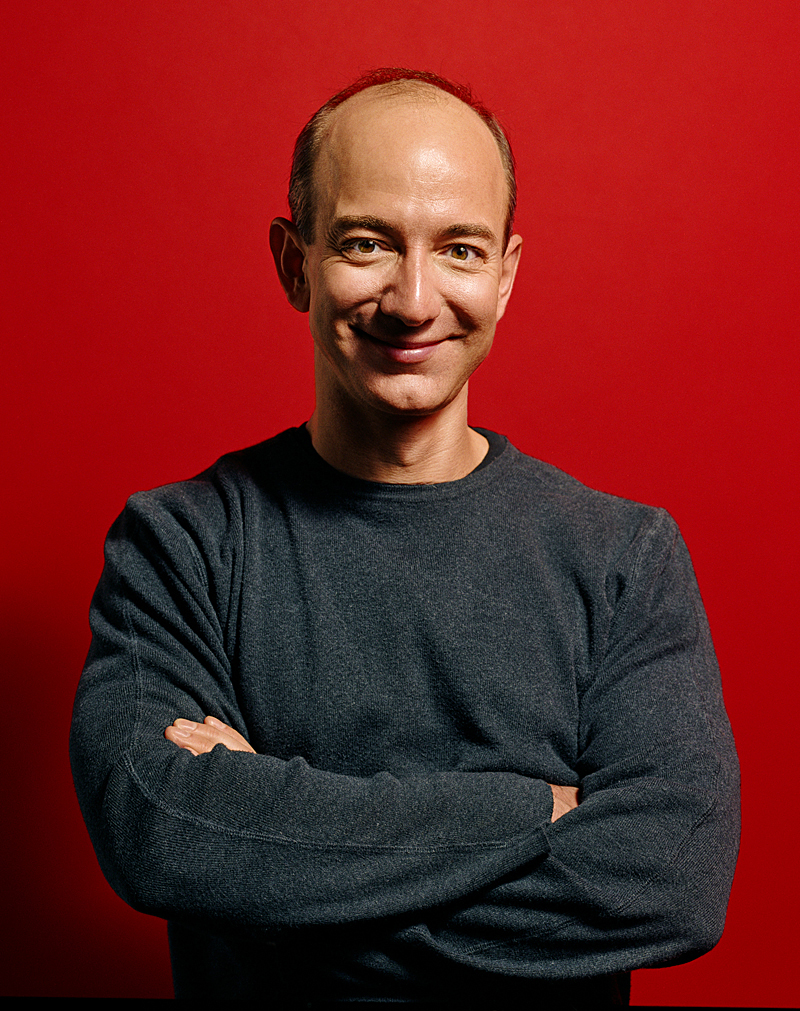The following is an excerpt from Richard L. Brandt’s One Click: Jeff Bezos and the Rise of Amazon.com (Penguin), released last month.
Jeff Bezos’s plans to expand Amazon.com beyond books started a year before those plans became known to most of the world. By the end of 1998, Bezos had proved his online model was able to compete with physical bookstores, at least in terms of selling, if not in profitability. With sixteen hundred employees at the time, his annual revenues amounted to $375,000 per employee. Barnes & Noble’s twenty-seven thousand employees were delivering less than a third of that amount apiece. Since he opened the store in 1995, sales had doubled every 2.4 months, on average. At the end of 1998, sales were still growing at over 300 percent a year, compared to 10 percent at Barnes & Noble. The site was able to turn over its inventory two dozen times a year, compared with three times a year at Barnes & Noble.
Now he was ready to take on more than books. In June of that year, after months of planning, he debuted a music store to sell CDs under the same model he was using to sell books. It had a database of 125,000 titles people could buy, ten times the number most physical music stores had to offer, and the titles were discounted by up to 40 percent. The site included professional and customer reviews, a top-sellers list, music news, recommendations, and an “essentials” list for anyone creating a collection of music. It also offered sound clips of 225,000 songs.
With that announcement, Bezos revealed his true ambition. “Our strategy is to become an electronic commerce destination,” he said. “When somebody thinks about buying something online, even if it is something we do not carry, we want them to come to us. We would like to make it easier for people online to find and discover the things they might want to buy online, even if we are not the ones selling them.”
It was not surprising that selling music CDs was the second business he tackled; it was the second choice on the list he had come up with when he first considered starting an online retail business. It was also not surprising, given the rise in Internet commerce, that this time he had to come up against existing competition. CDNow.com and n2k.com had started selling music online at about the same time Amazon started selling books. CDNow had twice the inventory of Amazon’s music store. In order to fight off the competition from Amazon, CDNow and n2k decided to merge their companies.
Many observers were as skeptical of Bezos’s ability to expand beyond books as they were of his ability to successfully sell books online in the first place.
One big concern: Getting into new retailing businesses, which have notoriously low margins, might keep the company from ever turning a profit. “The company has been able to show it can sell lots of books for less without making money, and now it has shown it can sell lots of music for less without making money,” said Merrill Lynch analyst Jonathan Cohen. Still, most Wall Street analysts were happy that Amazon’s soaring stock was making them so much money, and kept their “Buy” ratings, confident that Bezos could keep delivering.
Within four months, Amazon had sold over $14 million worth of CDs, outselling CDNow, the previous leader in selling online music. And, true to the skeptics’ assertions, he lost money doing it.
It’s important to note that Amazon isn’t invincible. Bezos has a simple formula that’s not so simple to pull off: Out-innovate the competition and give customers what they want. Companies that have been around long enough to get comfortable forget those mandates. They focus on profits and stock price, believing that raising prices and laying off employees is the way to win. Bezos does not make that mistake.
However, neither is he the world leader in innovation and satisfying customers’ needs. Steve Jobs claim[ed] that title, and when he put Apple into the business of selling music online by simply offering tunes that could be downloaded electronically, nobody could beat him, including Bezos. It seems that Bezos was focused on physical goods, and neglected to jump in early to offering electronic products for downloading.
After Jobs launched iTunes in April 2003, of course, Bezos caught on to the idea, and started working on the Kindle.




